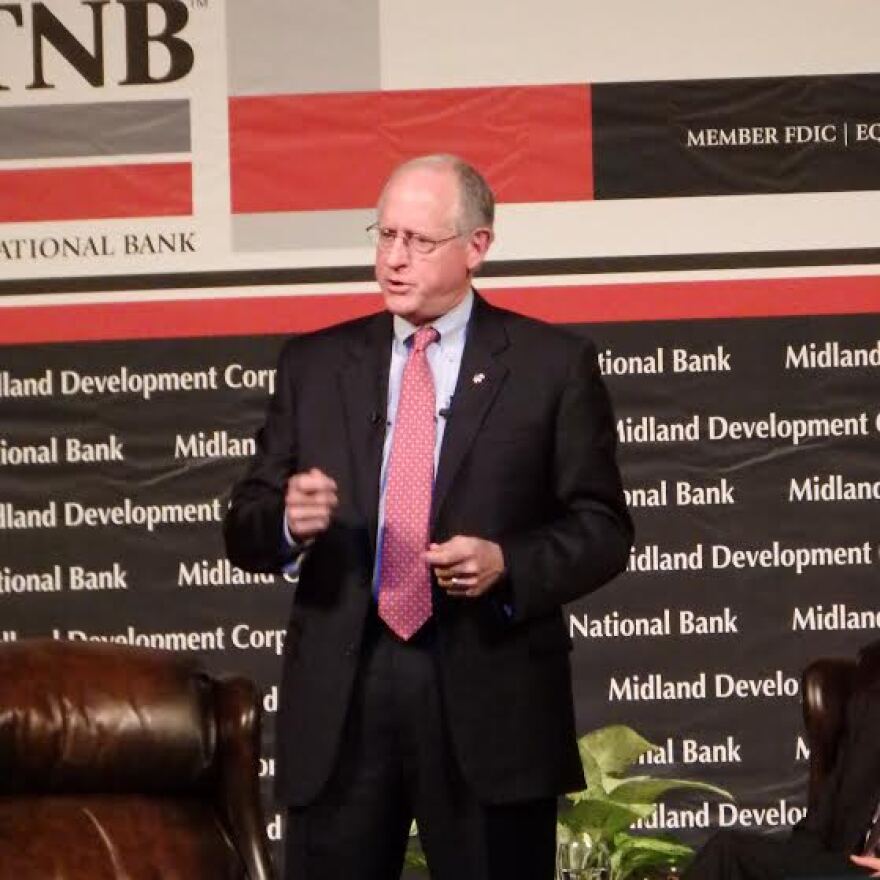The Midland Chamber of Commerce and the Midland Development Corporation hosted a conversation with U.S. Rep. Mike Conaway for the annual "State of the Economy" forum on Thursday.
Conaway laid out his views on a number of economic issues, ranging from the ways oil and gas production has helped rebound the economy in Texas, to how the Keystone XL pipeline would affect the Permian Basin.
He also offered his views on President Obama's push to raise the federal minimum wage.
"It's pandering," Conaway said. "It's intended to try to drive folks to the polls to vote for people who support that."
Conaway laid out his idea of the original purpose of the minimum wage:
"It was never intended to be a living wage," Conaway said, "it was intended to be those entry-level jobs that people start at and move up, and do the kind of things most everybody in this room has done."
Conaway said local businesses would be hurt by an increase to the minimum wage - that they wouldn't be able to absorb the cost of paying workers more, and wouldn't be able to offer the same amount of work as they currently do.
"The best way to raise wages is what we're doing here in West Texas," Conaway said. "Create a product that the rest of the world wants, do it really well, and grow these businesses, and get the federal government out of the way to allow job creation, which is the private sector's forte."
Despite those warnings, Conaway suggested a raise to the minimum wage would in reality not have that big of an impact locally in the Permian Basin.
"I suspect there's not a lot of folks out there that are starting those entry-level jobs at a minimum wage," he said.
The latest data from the Bureau of Labor Statistics show the median hourly wage in Midland at $17.43, and in Odessa at $16.52.
Conaway also delved into what he described as a public misperception of how government energy subsidies work.
He described "subsidies" as an "inflammatory" word, and said he's worked to change perceptions in Congress and in the general public that the industry relies heavily on government support.
"That's not what happens," Conaway said. "It is a tax treatment that has allowed this renaissance to occur in the oil and gas business. It's important that if we think changing it makes sense, that we understand the ramifications."
Lana Straub contributed reporting.


